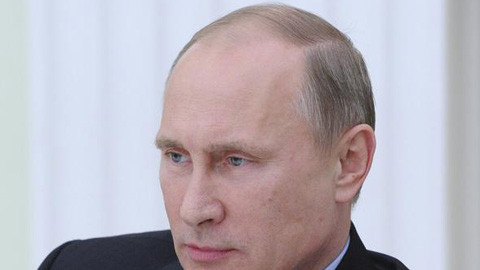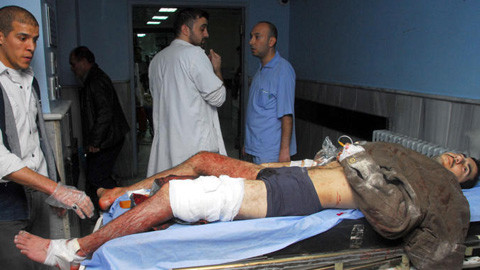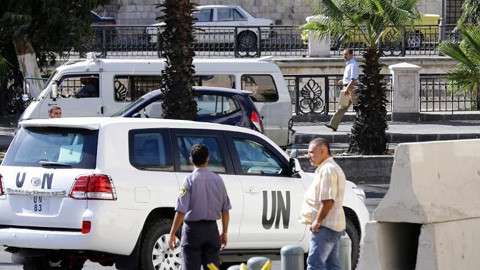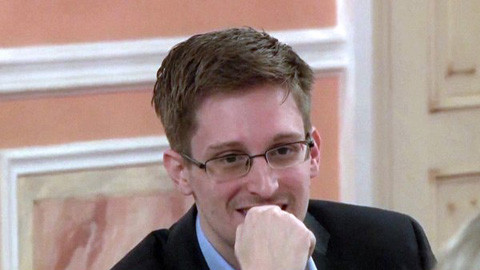Russian President Putin's experienced diplomatic moves
Russian President Vladimir Putin has won the title of Most Powerful Person of 2013 according to Forbes, from the US President.
This can be considered a spectacular usurpation of Mr. Putin if we know that Mr. Obama has been continuously voted the most powerful person in the world since becoming President of the United States in 2009, except in 2010 when Chinese President Hu Jintao was elected.
Success in a turbulent year with many fluctuations in international politics that could strongly impact Russia's position has clearly shown the diplomatic strength of the number one figure in the Kremlin and around the world.
 |
| Russian President Putin (Photo: AFP) |
His calmness and carefulness in weighing pros and cons, but his decisiveness and boldness in action, have helped Mr. Putin score points with the international community, pushing Russia's biggest rival, the United States, into a passive position in the Syria issue and causing the "reputation" of this leading superpower to be seriously damaged in the Edward Snowden case.
The Syrian Chessboard
Syria, Russia's closest and only ally in the Middle East, has been engulfed in the violence of a civil war that has lasted for the past two years and has left hundreds of thousands of people dead.
This civil war could last for many more years despite the efforts of the international community to find a peaceful solution to this crisis. The fundamental turning point that broke the balance on the Syrian chessboard broke out on August 21 when the government forces were accused of using chemical weapons to attack civilians in the suburbs of the capital Damascus, killing 200 people, including women and children.
Immediately, the US and its allies have been actively threatening, through words and actions, a military strike to punish Syria for crossing the “red line”. On August 22, US President Obama asked the Department of Defense to provide a series of military options and move naval forces closer to Syria to prepare for the possibility that President Obama may decide to deploy military forces in this country.
 |
| Scenes of casualties still present in Syria (Photo: Getty images) |
While the situation is "boiling" and the US seems to have the "upper hand" to be able to strike a decisive blow against Syria like the way it did against Afghanistan and Iraq, the whole world is turning its eyes to Russia and waiting for Russia to have similar or even stronger reactions to avoid a repeat of the tragedy.
However, in contrast to the "fighting" attitude of the US and its allies, Russian President Putin chose a seemingly much "gentler" response.
Russia has expressed its deep concern over the claims by some US officials that the Syrian government was behind the “use of chemical weapons” in al-Ghouta last week and urged Western countries not to exert military pressure on Syria and to create “normal conditions” for UN experts to conduct a specific and impartial investigation in Syria.
This view of Russia makes many countries in the world feel that Russia is gradually losing its influence in the international arena and is likely to "give up" under strong pressure from Western countries that are actively preparing for a military intervention in Syria.
However, right in the eye of the storm, Russian President Putin's keen observation, patience and endurance against strong and stubborn pressure were clearly demonstrated. His calculations then changed the wind direction and he immediately established an active position.
Russian President Putin decided not to act hastily but to wait until the US and its allies clearly revealed their limitations. This decision showed his sharp strategic "vision" when the world situation developed almost exactly as he had predicted.
Despite expressing his strong support for the US, the British Prime Minister failed to get the House of Commons to approve the Government's proposal on August 30 calling on MPs to support military intervention in Syria and Mr. Cameron had no choice but to act appropriately according to the decision of Parliament.
The US also immediately cooled down with a "face-saving" statement from President Obama a day later that he was considering a "limited-scale" action in Syria using cruise missiles launched from warships, targeting Syrian command targets.
Faced with US hesitation, Russian President Putin took another step to put the US in an awkward position by bluntly rejecting accusations that the Syrian government had used chemical weapons, calling them "absurd" and demanding the US provide evidence.
The US President has submitted to the US Congress a draft resolution authorizing military intervention against the Syrian government. This draft resolution was easily passed by the Senate, which is dominated by Mr. Obama's Democratic Party, but was "stuck" in the House of Representatives, which is dominated by the opposition Republican Party.
Although he loudly stated that he would "attack Syria even if Congress did not approve", Mr. Obama's statement was not well received by many people because they thought he could not be so reckless.
 |
| UN inspectors inspect chemical weapons in Syria (Photo: Reuters) |
In that situation, the US was forced to accept Russia's proposal to put all of Syria's chemical weapons under UN control to "cool down" the boiling atmosphere before the US military attack on Syria. Not only that, Mr. Putin's proposal was also considered a solution to help President Obama and the US "save face" because in reality, a military attack on Syria would be "against the will of the American people" and would receive little support from the international community.
After the US approved Russia's plan, the extremely tense situation in Syria was almost immediately relieved when Syria announced its readiness to place its arsenal under international supervision and join the International Chemical Weapons Convention.
Concerns that Russia and its ally Syria would use the plan as a “time-buying” measure were completely dispelled when Syria showed full cooperation and the inspection process of Syria’s chemical weapons stockpiles was quickly completed before November 1, the deadline for Syria to fulfill its commitment.
Positive developments in the Syrian issue have helped Mr. Putin receive support from many countries around the world. The Russian President was later nominated for the Nobel Peace Prize in 2013.
Although this title was awarded to the Organization for the Prohibition of Chemical Weapons, for many people, Mr. Putin is the key figure, the most proactive and positive person in the Syria issue and therefore should be most deserving of this award.
The Snowden Card
Russian President Putin's position towards his US counterpart Barack Obama is also more clearly demonstrated in the handling of the issue of former intelligence officer Edward Snowden, a former technical assistant of the US Central Intelligence Agency (CIA).
On June 9, Snowden revealed that the National Security Agency (NSA) had secretly collected information about Internet users.
Snowden has stated that his purpose in revealing the program of collecting information about Internet users is to let the American people know about this huge surveillance program, to protect the freedom of all citizens and not want the US Government to destroy the privacy and freedom of the Internet, called PRISM. The former CIA employee continues to shock the world community when revealing that US intelligence agencies have been and are continuing to attack the computer networks of many countries around the world for many years.
After fleeing to Hong Kong (China) and revealing this "earth-shattering" incident, Snowden continued to fly to Russia and planned to take another flight from Moscow to Cuba and then to Venezuela to seek asylum.
However, Russia quickly demonstrated its influence by completely changing Snowden's original plan and "holding" him at an airport in Moscow.
 |
| Snowden is considered Russia's card (Photo: Getty Images) |
Although it is unclear whether Snowden will stay in Russia or not when he continues to apply for asylum in many different countries, Russian President Putin has "scored points" with Snowden when he strongly spoke up to defend Snowden: "The extradition of Snowden to the US for trial is not something that any individual wants. Moreover, Snowden has not completed the entry procedures to Russia and Russia and the US have not yet signed an extradition treaty. Therefore, it is impossible to extradite Snowden to the US."
The situation is even more favorable for Russia in tying Snowden down when a series of countries such as Poland, Norway, India and Germany either refused or were hesitant about Snowden's request because these countries also "hesitated" before the US's determination to block all "paths" for Snowden's asylum.
Pushed to the brink and with Russia as his only option, Snowden decided to take refuge in Russia and from there, Snowden's revelations have made him an unending obsession for the United States.
Consecutive revelations about the US National Security Agency (NSA) spying on information from Brazil, Argentina, Bolivia, China, Germany, and a series of Southeast Asian countries such as Thailand, Indonesia, etc. have seriously damaged the US's relationship with these countries.
The crisis of confidence among both America's allies and enemies about its spying program has forced the US to admit that its government has "gone too far" on this issue.
With Snowden, Russia now holds an extremely important card that can cause trouble for the US and make this country suffer whenever it wants. Putin’s careful, reasonable and sharp calculations in the Snowden issue once again show how “outstanding” his vision and way of handling the problem is.
Judo, also known as Nhu Dao, is a martial art that Russian President Putin loves and has practiced for many years since he was a child. This martial art emphasizes the ability to actively defend, the ability to react flexibly and assess the situation so that he can follow the opponent's attacks and counterattack to gain the upper hand. What he has learned in Judo has been excellently demonstrated by Mr. Putin in the aspect of international diplomacy.
Although he did not "make a big deal" or "take big actions" to "show off his power", what Mr. Putin did in 2013 left a deep impression in the eyes of many countries around the world and helped Russia regain its position as a leading superpower./.
According to VOV






